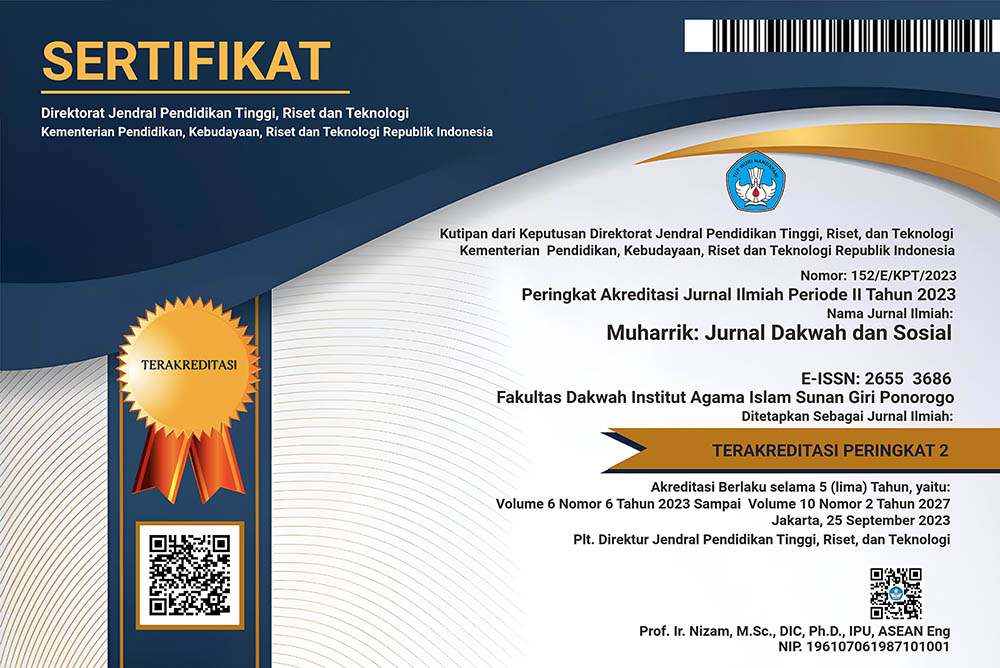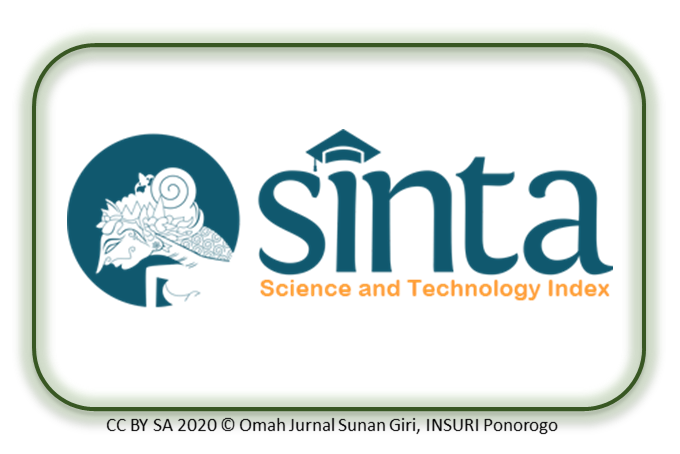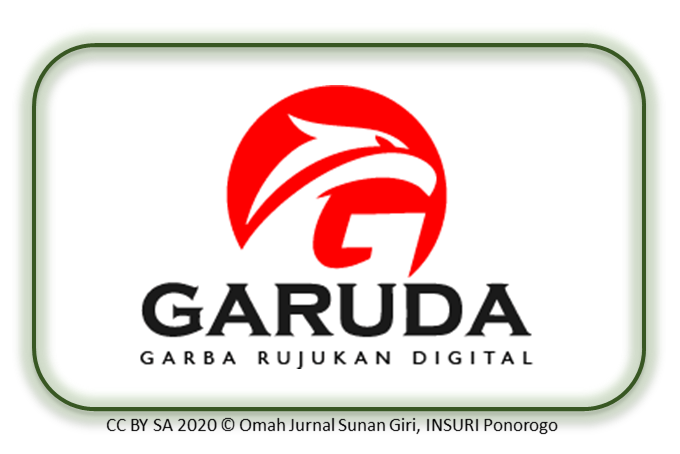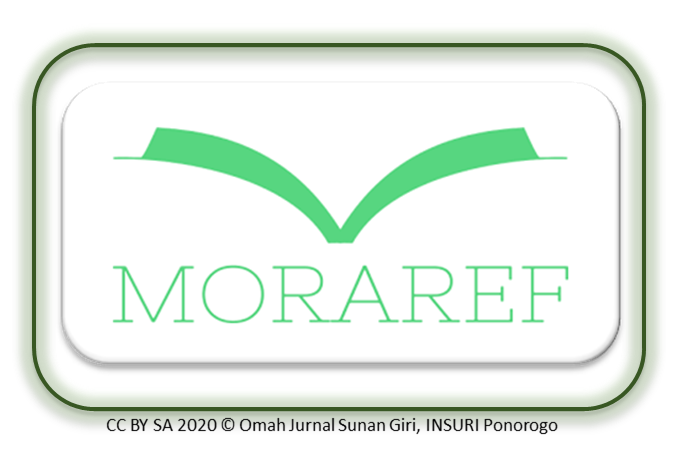Building Peace through Social Capital: Preventing Religious Intolerance in Manggarai, Indonesia
Keywords:
social capital, intolerance prevention, bonding social capital, bridging social capital, linking social capitalAbstract
This article examines how social capital prevents and manages religious intolerance and conflicts in Manggarai, East Nusa Tenggara, Indonesia. Departing from the limited attention paid to local community practices compared to previous studies emphasizing state regulation or religious leadership, this study focuses on how bonding, bridging, and linking social capital are operationalized in everyday life. Drawing on Putnam's social capital framework and a qualitative approach, the research employed 20 in-depth interviews, four focus group discussions (FGDs), and document analysis in Ruteng (urban) and Reo (rural), with data triangulation and cross-case comparison to enhance validity. The findings show that symptoms of intolerance are relatively rare. Conflicts such as youth disputes triggered by hoaxes or contestations over places of worship are resolved peacefully through collaborative mechanisms involving religious leaders, traditional leaders, the Interreligious Harmony Forum (FKUB), youth forums, and local government. Cultural norms of kinship, inclusivity, and unity strengthen bonding capital, cross-group dialogues serve as bridging capital, while FKUB's institutional role and government–community partnerships provide linking capital. Theoretically, the study contributes by demonstrating a hybrid model of social capital in Manggarai, where cultural traditions and institutional structures reinforce one another in sustaining interfaith harmony while exposing vulnerabilities such as minority exclusion and dependence on proactive leadership. These findings enrich scholarly debates on social capital and tolerance in plural societies and offer practical recommendations for strengthening interfaith youth engagement, embedding cultural wisdom into institutional forums, and ensuring inclusive representation within FKUB to support broader national efforts.
References
Adut, Siprianus, 32, Catholic Youth Representative, Reo, 2 July 2022.
Al Gadri, Husein, a religious leader and retired local parliament member of the Manggarai Regency, Reo, 3 July 2022.
Aldridge, S., David Halpern, and Sarah Fitzpatrick. (2002). Social Capital: A Discussion Paper. London, England: Performance and Innovation Unit.
Ando, Herman, 67, head of FKUB Kec. Reo, Reo, 3 July 2022.
Anheier, H. & Kendall, J. (2002). “Interpersonal Trust and Voluntary Associations,” British Journal of Sociology 53, pp. 343-362.
Badan Pembinaan Ideologi Pancasila. (n.d.). Badan Pembinaan Ideologi Pancasila. Diakses 10 Februari 2022, dari https://www.bpip.go.id/bpip/
Bourdieu, P. (1983). "Ökonomisches Kapital, kulturelles Kapital, soziales Kapital" in Soziale Ungleichheiten (Soziale Welt, Sonderheft 2), edited by Reinhard Kreckel. Goettingen: Otto Schartz & Co.
Claridge, T. (2018). “Functions of social capital – bonding, bridging, linking” in Social Capital Research, (1-7) accessed on 22 May 2022, https://www.socialcapitalresearch.com/wp-content/uploads/2018/11/Functions-of-Social-Capital.pdf.
Coleman, J. C. (1988). "Social Capital in the Creation of Human Capital". American Journal of Sociology. 94, 95–120.
Dolfsma, W. & Dannreuther, C. (2003). “Subjects and boundaries: Contesting social capital-based policies,” Journal of Economic Issues 37, 405-413.
Focused Group Discussion di Reo, 2 Juli 2022.
Focused Group Discussion in Ruteng, 30 Juni 2022.
Grootaert, C. & Van Bastelaer, T. (2002a). “Conclusion: measuring impact and drawing policy implications” in The Role of Social Capital in Development, (pp. 341 – 350) by Thierry Van Bastelaer (ed.). Melbourne: Cambridge University Press.
Halili. (2017). Supremasi Intoleransi. Yogyakarta: Setara Institute, accessed on February 2022 from https://www.ahlulbaitindonesia.or.id/berita/index.php/s13-berita/resensi-buku-supremasiintoleransi/.
Heffron, J. M. (2000). “Beyond community and society: The externalities of social capital building,” Policy Sciences 33, 477-494.
Hitt, M. A., Lee, H-U, and Yucel, E. (2002). "The importance of social capital to managing multinational enterprises: Relational networks among Asian and Western firms," Asia Pacific Journal of Management 19, 341 - 53.
Huda, N.M. (2017). Intoleransi Kaum Muda di Tengah Kebangkitan Kelas Menengah Muslim di Perkotaan, PDF, Jakarta: The Wahid Foundation, accessed on February 8th, 2022, https://drive.google.com/file/d/1VFWN8blwQzjCqDIHUwyFrCddOTouT8QU/view.
Imparsial. (2019, November 17). Imparsial Temukan 31 Kasus Intoleransi selama Setahun. Diakses 5 Februari 2022, dari https://www.cnnindonesia.com/nasional/20191117163821-32-449096/imparsial-temukan31-kasus-intoleransi-selama-setahun CNN Indonesia
Kasim, Ahmad, 73, Muslim figure, Reo, 2 July 2022.
Krishna, A. and Uphoff, N. (2002). ‘Mapping and measuring social capital through assessment of collective action to conserve and develop watersheds in Rajasthan, India,” in Thierry Van Bastelaer (ed.). The Role of Social Capital in Development (pp. 85 – 88, 115 – 124), Melbourne: Cambridge University Press.
LIPI. (n.d.). LIPI: Intoleransi Politik di Indonesia Meningkat. Diakses 3 Februari 2022, dari https://www.voaindonesia.com/a/lipi-intoleransi-politik-di-indonesia-meningkat/4687374.html
Momas, Sr. Maria Yohana, Head of FKUB Kab. Manggarai, 51 years old, Ruteng, 30 June 2022.
Narayan, D. & Pritchett, L. (1999). “Social capital: Evidence and implications.” in Ismail Serageldin (ed.), Social Capital: A multifaceted perspective, (pp. 269-296). Washington, DC: World Bank.
Narayan, D. (2002). “Bonds and bridges: social capital and poverty.” Sunder Ramaswamy (ed.), Social Capital and Economic Development: Well-being in Developing Countries, Cheltenham, UK: Edward Elgar.
Nugraheny, D. E. (2019). “Ini Tiga Sebab Menguatnya Sikap Intoleransi di Indonesia Versi Polri“, accesed on February 22, 2022 from https://nasional.kompas.com/read/2019/11/16/07364551/ini-tiga-sebabmenguatnya-sikap-intoleransi-di-indonesia-versi-polri?
Portes, A. (1998). "Social Capital: Its Origins and Applications in Modern Sociology". Annual Review of Sociology. 24, 1–24.
Puslitbang Bimas Agama dan Layanan Keagamaan Badan Litbang dan Diklat Kementerian Agama Indonesia. (2019). “Daftar Skor Indeks Kerukunan Beragama versi Kemenag 2019“, accessed on February 8th, 2022, https://tirto.id/daftar-skor-indeks-kerukunan-beragama-versi-kemenag-2019-engH.
Putnam, Robert D. (1995, January). "Bowling Alone: America's Declining Social Capital". Journal of Democracy. 6 (1), 65–78.
Qodir, Z. (2016, May). “Kaum Muda, Intoleransi, dan Radikalisme Agama”, Jurnal Studi Pemuda, Vol. 5, No. 1, 429 – 445.
Rahman, D. A. (2019). “Imparsial: Intoleransi Masih Jadi Masalah yang Terus Berulang di Indonesia” accessed February 5th, 2022, https://nasional.kompas.com/read/2019/11/17/16015521/imparsialintoleransi-masih-jadi-masalah-yang-terus-berulang-di-indonesia.
Saleh, Mohammad, 38, Muslim Youth Representative, Reo, 2 July 2022.
Timu, Maxi, SE, 53, Pastor of Bethel Indonesia Rock Church, Ruteng, 30 June 2022.
Uphoff, N. & Wijayaratna, C.M. (2000). “Demonstrated Benefits from Social Capital: The Productivity of Farmer Organizations in Gal Oya, Sri Lanka.” World Development 28, 1875-1890.
Van Deth, J. D. (2003). “Measuring social capital: orthodoxies and continuing controversies,” International Journal of Social Research Methodology 6, 79-92.
Wallis, A. (1998). “Social capital and community building. (Building Healthier Communities: Ten Years of Learning)(part 2),” National Civic Review 87, 317-19.
Wallis, A., Crocker, J.P. and Schechter, B. (1998). “Social capital and community building, part 1,” National Civic Review 87, 253-72.
Woolcock, M. (1998). “Social Capital and Economic Development: Toward a Theoretical Synthesis and Policy Framework”, Theory and Society 27 (2), 151-208.
Woolcock, M., & Narayan, D. (2000). Social Capital: Implications for Development Theory, Research, and Policy. World Bank Research Observer, 15(2), 225-249. Oxford Academic+2SCIRP+2
Downloads
Published
Issue
Section
License
Copyright (c) 2025 Mirsel Robertus, Felix Baghi, Puplius M. Buru

This work is licensed under a Creative Commons Attribution-NonCommercial 4.0 International License.
The author(s) retain/s the copyright and grant/s Muharrik: Jurnal Dakwah dan Sosial the first publication rights licensed under the Creative Commons Attribution-NonCommercial 4.0 International (CC BY-NC 4.0) , which allows others to access (search, read, download and quote), share (copy and redistribute the material in any media or format) and adapt (mix, modify and develop) works for legitimate non-commercial purposes, with recognition of the authorship of the work and its initial publication in this journal.












